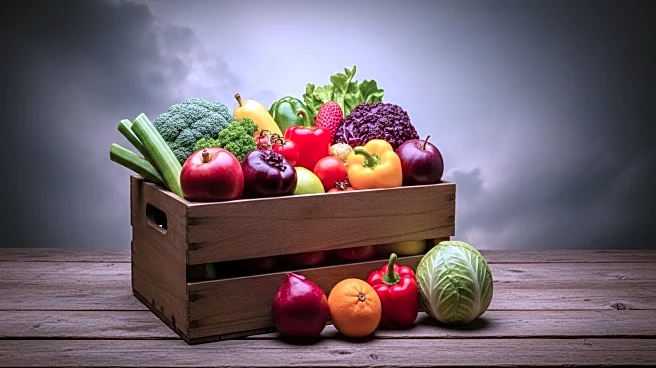What's Happening?
The World Trade Organization is witnessing new disputes as the United States has reimposed a 10 percent duty on imports from all trading partners, affecting approximately 70 products, including key agricultural goods. This action has prompted Brazil to formally request consultations with the U.S., following similar actions by Canada and China. The tariffs are impacting sectors such as soybeans, rice, fruits, and vegetables, with China yet to make significant new U.S. soybean purchases and Canadian consumers shifting away from U.S. rice. Analysts warn that input costs for farm machinery and chemicals could rise, affecting production. The disputes highlight the fragile balance between trade policy, farm exports, and input supply chains.
Why It's Important?
The reimposition of tariffs by the U.S. poses significant risks to its agricultural sector, potentially leading to retaliation from other countries and lost markets for American farmers. The increased costs for farm inputs could further strain growers, impacting their profitability and competitiveness. These developments could alter global trade patterns, affecting U.S. exports and the agricultural supply chain. The situation underscores the delicate interplay between trade policies and economic stability, with potential consequences for U.S. farmers and related industries.
What's Next?
As the WTO disputes unfold, stakeholders in the U.S. agricultural sector may need to adapt to changing trade dynamics and seek alternative markets. Political leaders and industry groups might engage in negotiations to mitigate the impact of tariffs and explore strategies to support affected farmers. The ongoing consultations with Brazil and other countries could lead to adjustments in trade policies or agreements aimed at reducing tensions and fostering more stable trade relations.










